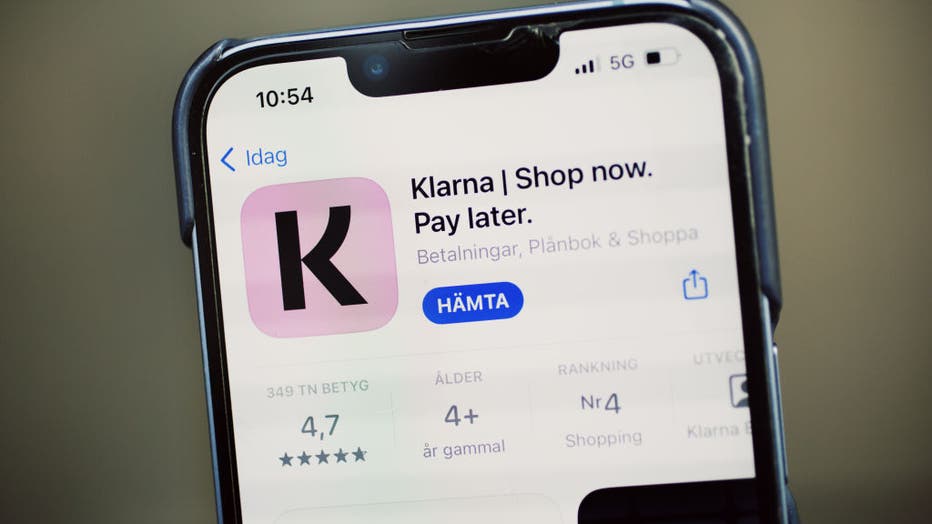Buy now, pay later under scrutiny as Klarna reports rising defaults

"Buy now, pay later" options could cost you
An industry analyst explains what consumers should watch out for with "buy now, pay later" options. (Video courtesy of FOX5 New York)
LOS ANGELES - A growing number of Americans are struggling to keep up with their buy now, pay later (BNPL) loans, according to new data from Klarna and recent studies by LendingTree and Bankrate. While BNPL platforms promote the service as a flexible, interest-free alternative to credit cards, rising late payments suggest that many users are now overextending themselves financially.
The timing coincides with broader economic challenges — U.S. consumer debt recently hit a record $18.2 trillion, and inflation continues to squeeze household budgets. At the same time, federal regulators are easing off new rules meant to safeguard users of these rapidly growing lending services.
Why are more people falling behind on BNPL payments?
The backstory:
BNPL loans let consumers split a purchase into smaller installments, often four payments or fewer, usually without interest. These services are especially popular among younger users and people who may not qualify for traditional credit cards.
But new data shows cracks in the model:
- Klarna reported a 17% rise in consumer credit losses in Q1 2025 compared to the same period last year, totaling $136 million.
- While the company attributed the spike to an increase in total loan volume, it also acknowledged a rise in the global percentage of unpaid loans, from 0.51% to 0.54%.
- An April LendingTree survey found that 4 in 10 BNPL users made at least one late payment in the past year, up from 1 in 3 the previous year.
- A Bankrate report in May found 1 in 4 users chose BNPL because it was easier to get than a credit card — often requiring no or soft credit checks.
The six largest BNPL companies — Affirm, Afterpay, Klarna, PayPal, Sezzle, and Zip — issued more than 277 million loans in 2022, totaling nearly $34 billion in merchandise sales, according to the Consumer Financial Protection Bureau (CFPB).
Why are regulators stepping back?
The other side:
A Biden-era regulation categorized BNPL loans under the same protections as credit cards, requiring clearer disclosures, refund rights, and guardrails on fees and automatic payments. But earlier this month, the Trump administration said it would no longer enforce those rules.
The CFPB said its decision allows the agency to refocus on "pressing threats to consumers," including protections for servicemembers and veterans.
Consumer advocates pushed back:
"By taking a head-in-the-sand approach to the new universe of fintech loans, the new CFPB is once again favoring Big Tech at the expense of everyday people," said Adam Rust, director of financial services at the Consumer Federation of America.

FILE — A smartphone displays Klarna’s "Shop now. Pay later." app listing in the App Store. The buy now, pay later provider reported a rise in missed payments, as more Americans struggle to repay short-term installment loans. (Photographer: Erika Gerdemark/Bloomberg via Getty Images)
Without oversight, they argue, borrowers have fewer tools to contest charges or understand the long-term risks.
What are the risks of BNPL loans?
Why you should care:
BNPL loans can appear deceptively simple — a quick approval, no interest, and a way to get what you want immediately. But experts say the lack of oversight and rising usage are exposing consumers to new forms of debt they may struggle to manage.
Justine Farrell, a professor at the University of San Diego who studies BNPL behavior, says the economic environment is compounding the issue.
"Consumers’ financial positions feel more spread thin than they have in a long time," Farrell said. "The cost of food is continuing to go up, on top of rent and other goods … so consumers are taking advantage of the ability to pay for items later."
Industry research has also shown that BNPL usage can lead to more spending, more overdraft fees, and greater use of high-interest credit cards to make ends meet.
What's next:
With enforcement paused, the CFPB’s original BNPL rules may remain on the books but have little effect in practice. Meanwhile, industry growth continues — Klarna’s partnerships now include DoorDash, and reports show consumers using BNPL for everything from concert tickets to takeout food.
Without stronger guardrails, consumer advocates say BNPL users may continue to fall through the cracks.
The Source: This report is based on disclosures from Klarna, public surveys from LendingTree and Bankrate, and statements from the Consumer Financial Protection Bureau. Additional insight was provided by researchers at the Federal Reserve and the University of San Diego, along with the Consumer Federation of America.

